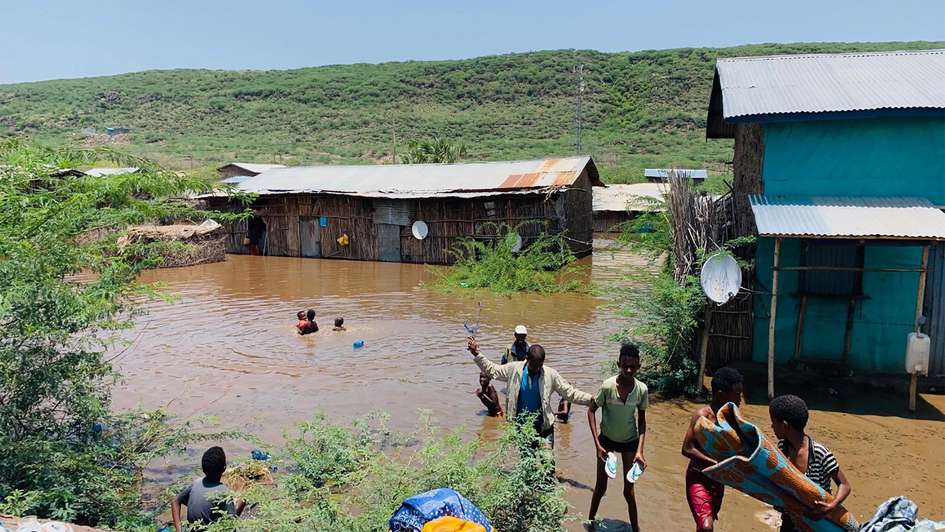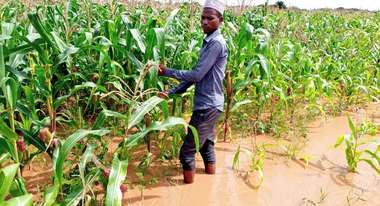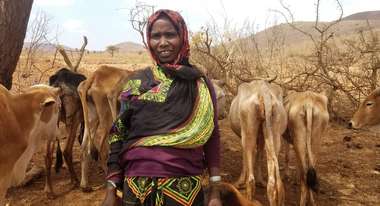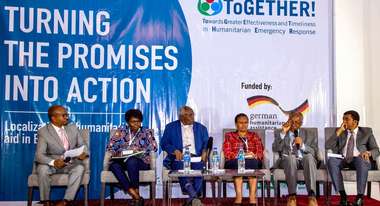Drought, Locusts, Coronavirus, and now a Once-in-a-Century Flood
Following Flooding in East Africa, Welthungerhilfe is Providing 250,000 Euros for Emergency Assistance.

Bonn/Berlin, 2020-09-22. Particularly heavy rainfall has caused flooding in East Africa. Just in Ethiopia, Sudan, and South Sudan, around 2.5 million people have been left with no defence against the mass of water. More rainfall is predicted for the coming days. Due to the plague of locusts and the coronavirus pandemic, people's reserves have run out. Welthungerhilfe is providing an extra 250,000 euros to supply families in affected countries with the essentials.
The situation is particularly dramatic in Ethiopia, where more than a million people have been affected: “This is the worst flood in living memory. Some villages have been waiting over a week for food aid. Farmland and pastures have been destroyed, a lot of livestock has drowned,” explains Matthias Späth, Country Director for Ethiopia, the difficult situation.
Matthias Späth, Country Director for Welthungerhilfe in Ethiopia and Somaliland, is available for interviews.
“Drought, locusts, coronavirus, and now floods as well: Terrible and extreme disasters are coming one after another. And it always affects the poorest and weakest, who already face ruin. People just don't have a chance to get out of crisis management mode.”
People in Sudan are also experiencing a once-in-a-century flood, and the Nile has reached unprecedented levels. Last week the government declared a three-month state of emergency.
The number of extreme weather events has doubled since the early 1990s. “We can see that the rain is increasingly starting too early, too late, not at all, or in great quantities, not just in East Africa, but also currently in the Sahel region and in South Asia. This has fatal consequences for farming and people's living conditions, which are already difficult,” says Bettina Iseli, Programme Director for Welthungerhilfe. “The weather has simply become unpredictable. The people worst affected by the extreme weather are those who bear least responsibility for climate change.”
Welthungerhilfe is supporting affected people by providing drinking water, soap, hygiene kits, sleeping mats, protective tarpaulins, and mosquito nets.
Welthungerhilfe is one of the largest private aid organisations in Germany; politically independent and non-denominational. It is fighting for “Zero Hunger by 2030”. Since it was founded in 1962, more than 9,830 overseas projects in 70 countries have been supported with 3.95 billion euros. Welthungerhilfe works on the principle of empowering people to help themselves: from fast disaster relief to reconstruction and long-term development cooperation projects with national and international partner organisations.







